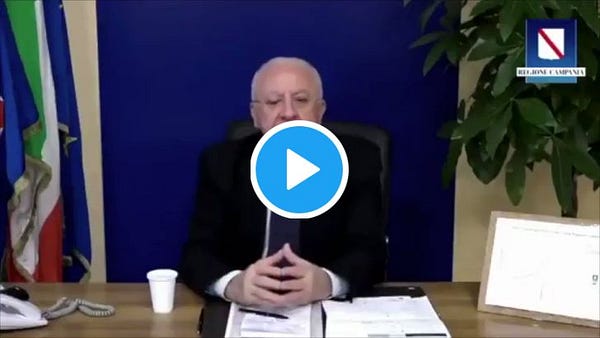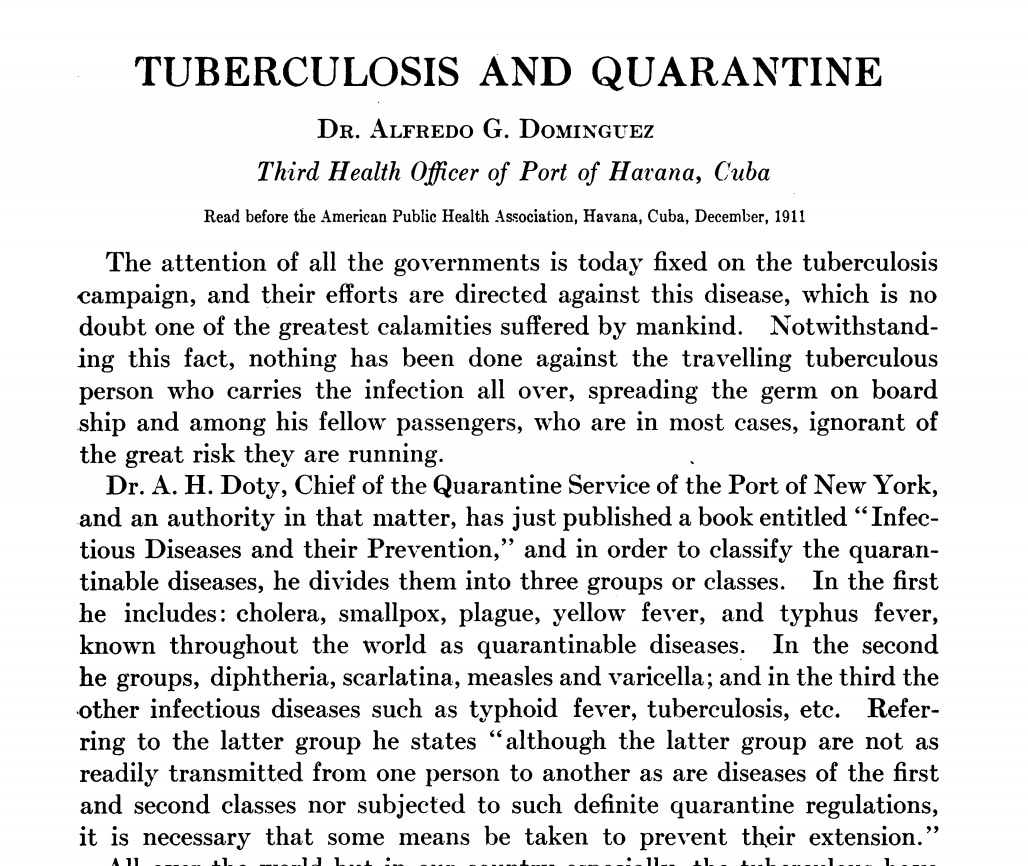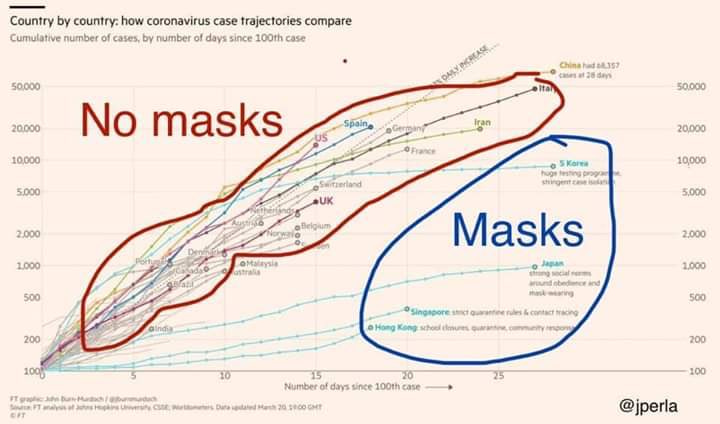I was expecting a lively response from my readers to this question, but I wasn’t expecting such an overwhelming one.
Every mannerly instinct in me says I should reply to your letters personally. They warrant it. But I just can’t. I’m one woman, here: If I resolve to answer each letter personally, there won’t be a newsletter anymore.
I should have said this, though: Could you please say where you live, exactly? Maybe in the subject line? I can’t necessarily tell. It’s not obvious from the context.
I’ll start publishing extracts soon. (Paris time.)
If you’ve been reading this newsletter for a while, you’ll know two things:
Let’s examine a case study:
Item: This was reported today by Christian Rocca, a columnist for La Stampa and the former US correspondent for Il Foglio. The headline: The Russians are in Italy.
In the midst of a humanitarian crisis, someone authorized Putin’s military vehicles to roam around Italy on the pretext of bringing unnecessary aid, at the invitation of a disturbing populist international …
In my nostalgic vision of the America in which I grew up, it would be headline news that the Russian military is cavorting across the territory of a NATO ally, apparently at the invitation of some grotesque coalition of populists, neo-Nazis, and Putinists.
These days, you have to read the Italian newspapers to learn about this sort of thing. The good news is that you can, whether or not you read Italian. Google Translate is that advanced.
China is flying civilian doctors and medical aid to Italy. A publicity stunt, but a useful one, at least. We’re flying aid to Italy too, but somehow no one knows this. Why not? What happened to the State Department? (Rhetorical question.)
Russia sent its military, including 100 specialists in “bacteriological warfare”—get it?—even though Italian government sources say 80 percent of the supplies are “useless.”
Here’s a Russian military convoy, proceeding leisurely through Rome. Rome!
Russia has actually called this the “From Russia With Love” package. No, I’m not kidding. This is not fake news. The Red Army is gallivanting through Rome. A detour from obliterating every last Syrian civilian.
My Italian friend Piero confirmed this wasn’t all just a hideous translation error. He helped me improve upon Google’s rendering:
For the first time in history, soldiers and heavy military vehicles ran over Italian soil, having come by the long route, a sort of early victory lap … For some reason, they asked to land in Rome—on a NATO base, rather than in Malpensa, the nearest big airport. Then they paraded for 600 kilometers, followed by Russian media.
NATO officials are having conniptions.
The world is convulsed not only by the pandemic but by a global propaganda war. Through one set of channels, the CCCP is aggressively spreading the message that unlike the US, it’s a responsible partner. Through another, it’s spreading the message that the virus is an American bioweapon. Russia is gleefully adding to the chaos with its troll farms and playfully separating European countries from each other and the United States even further from its allies. (Why isn’t the DoD unleashing a massive offensive on the Russian troll farms?)
This is how things appear to Repubblica:
The Covid-19 epidemic changes the picture of Italy’s allies … Once upon a time there were Americans, today, to help our country overwhelmed by the virus, Chinese, Russians and Cubans arrive. … In addition to the Italian flag, the red of the Chinese flag flies in many hospitals in Lombardy. But there is also the Russian flag, with doctors and respirators sent yesterday by Putin to Rome.
In the depths of the Italian health crisis, something else has happened: You can see the first signs of a geo-political acceleration in the Mediterranean, in which the United States is increasingly absent and distant. Those who wish to understand which world will emerge after the coronavirus will have, before their eyes, photos of Russian military planes, Chinese aid, Cuban doctors. And they won’t easily find the photo of the only American plane to leave yesterday from the base in Ramstein, in Germany, to land at the base in Aviano, with a load of medical aid that arrived in Italy in an almost clandestine way.
The United States Army has also delivered medical supplies and equipment to Lombardy Region. But apparently, this isn’t what Italians are seeing, so we’re not getting the diplomatic benefit. Italians are, however, like the rest of the world, seeing that the greatest nation in the history of the world can’t even produce enough tests, face masks, or ventilators for itself. And I’m seeing that the country that once pulled off the Berlin airlift no longer has a clue how to win a propaganda war.
This isn’t just a health crisis, it’s a geopolitical crisis. Americans are bickering, in all earnestness, over whether to call this a “Chinese virus.” But it doesn’t matter a whit what we call it. This argument is entirely for domestic consumption. In the real world, the global order is being reorganized—in China’s favor—and we’re not doing a thing about it. China is fighting to win; we’re not fighting at all, and Russia is fighting to see everyone, including themselves, die of the virus or in a shooting war. Meanwhile, we’re repeatedly shooting ourselves in the nuts.
Stop reading this for a second and take a second to read this article:
China, Russia and even Cuba received widespread publicity for sending protective equipment, ventilators and doctors to Europe to help countries fight the pandemic.
Facing the prospect of a Euroskeptic backlash if Europe fails to rally during the crisis, EU member countries are now scrambling to show the European Union is a genuine community …
What’s the most notable thing about that article? It’s like the dog that didn’t bark, isn’t it? It’s as if the United States has ceased to exist.
Italian mayors lose it with the unrepentant unsanitary:


An excellent account by John Lichfield, who’s always reliable on France, of the way the epidemic has set cities here against the countryside.
A French gendarme, a 51-year-old married father of three, has died of the coronavirus. He fell ill several days ago; then his condition, according to BFMTV, “brutally deteriorated.” The police are threatening to stop enforcing the lockdown unless they’re given proper protective equipment. The Interior Ministry’s decision to divert stocks of face masks to healthcare workers has infuriated them. They say they need protection just as much. Obviously, they’re not wrong.
Here the spokeswoman for the Gendarmerie describes the problems the police have confronted in their attempts to persuade the unregenerate unsanitary to go home. Sometimes, she says, they become violent:


From 1911: Tuberculosis and Quarantine:



There’s widespread confusion about whether we really have to be on lockdown. People wonder why South Korea, Taiwan, and Singapore have been able to fight the virus without one. That’s an excellent question. It’s one people should be asking. Anne Applebaum asks it in an article with which I otherwise agree, but she doesn’t explain the answer clearly, so I’m going to undertake it as a civic duty. The correct answer is, “Because your government screwed up.” But that doesn’t mean the lockdown is unnecessary.
Every despot and would-be despot on the planet, as Anne Applebaum observes, is going to seize this virus as an opportunity for a naked power grab. Dead right. They’re doing it already. But people who are right to be concerned about that shouldn’t misunderstand the situation.
The reason we have to be on lockdown, and South Koreans don’t, is that their government didn’t screw up. It’s not just the French and American governments that screwed up—our societies screwed up. It’s not just populists who screwed up, either: In France, the populists are accusing Macron of screwing up in language just as vituperative as the Democrats.’
Everyone in the West screwed up—which excuses no one. If we had acted in time, we could have avoided this. But Europe and the US, and really, all of the world except a handful of east Asian democracies, waited too long and pursued the wrong strategy. (Germany seems to have done better so far, but we’ll see.)
You can only pursue the light-touch strategy if you begin in the early stages of the epidemic, when very few people have the virus and it’s possible to find them all, track down all of their contacts, and isolate them. The strategy is predicated upon rapid, widespread testing and contact tracing from the very first day of the outbreak.
It helps a great deal if you have a public that’s recently experienced an outbreak of a lethal respiratory virus—one that really, viscerally understands what such a virus can do. It helps if people have the instinct to put on masks. For years we’ve laughed at the dorky Japanese tourists who show up at the Grand Canyon or the Louvre in their surgical masks, right? But we’re sure not laughing anymore. And no, those masks are no guarantee you won’t contract the infection, though they’re better than nothing. The point is that they protect other people from your infection. The asymptomatic are the key vector of transmission.
But of course, we didn’t have enough masks.

It helps if there’s social trust and cohesion among the public, a government that enjoys broad support, and a tendency to be obedient and respectful of authorities. Our societies don’t really cherish “mindless obedience to authority,” and most of the time, that’s a good thing. But not this time. People must be willing to do what the government says before the emergency rooms are overflowing. Everyone must be willing to hew closely to complicated, tiresome hygienic protocols before the epidemic is uncontainable.
It’s got to help if the public has a generally high standard of education. If only a small sliver of the public is educated, most people won’t understand the strategy well enough to comply to the required level of competence. I assume it’s useful to have a public educated enough that there’s widespread, not patchy, understanding of the germ theory of disease; widespread numeracy—so people grasp, in time, that this isn’t “just the flu”—and widespread literacy, so people are generally able to read and understand a newspaper. If the public doesn’t really understand what’s going on, and doesn’t trust the government, it can’t cooperate at the scale required early enough in the epidemic. This is why it might matter that Americans are innumerate and illiterate.
We’ll understand more in the years to come about East Asia’s success—if indeed it is a success, it’s too soon to say—but we can’t replicate it now. It’s too late, and we’re not those societies.
Neither France nor the United States—and my God, certainly not India—can undo those initial, massive mistakes. We should have been prepared for a pandemic. We should have understood this immediately as a massive threat. Then, like East Asia, we should have all worn masks, tested our populations as widely and quickly as possible, segregated the infected, and traced their contacts. Singapore, Japan, and (to my surprise) Mauritania had the right reflexes. We didn’t. We can remonstrate with each other for years about whose fault this is, and surely we will, if we’re still alive, but we need to grasp one thing quickly: The only tool we have right now is the ancient remedy—quarantine.
Until when? Until the epidemic peaks and declines, which it will, and we have the capacity to test everyone, or at least, to test enough people to gauge the prevalence of the virus in any given area. But right now, we need to be locked down. It’s the only way to diminish the catastrophe as we buy time and struggle to get back to a place where more limited measures would work.
The lockdown is temporary. It won’t last forever. It won’t take eighteen months, as some have suggested. The epidemic can’t last that long. It’s not as if Farr’s Law has been repealed. No one’s suggesting we stay at in our homes until famine takes its course. If we’re sane and if we modify our behavior, the initial epidemic will soon run its course. When it begins to decline, we can apply our newfound ability to test people widely and quickly. Then we can start lifting the confinement—cautiously, bit by bit—and thereafter contain outbreaks locally, without using such extreme measures. French epidemiologists think it will take about six weeks. Give or take.
Right now, though, postponing lockdown measures, evading them, or lifting them prematurely will result in an unacceptable death toll—one no decent society, certainly not one that prides itself on its technological advancement and reverence for human life, could accept that. We can’t tell, right now, who’s infectious and who’s not. We can’t even guess.
The government—in France and the US alike—has a tricky problem, because this is hard to explain. Lacking a clear explanation, people won’t understand it.
Actually, it’s not hard to explain: I just explained it. But do not expect your elected officials to say, straight up, “You’re locked down because we screwed up, sorry.” Figure it out yourself. Yes, we do have to be locked up; no, the government isn’t just trying to turn us into serfs; yes, South Koreans are walking around like free men and women; no, that doesn’t mean we can.
Like the US, France does not have enough tests or masks. French officials, too, insisted that masks were only necessary for health care workers and those who were sick—even though everyone with two firing neurons now grasps that there are asymptomatic carriers and we have no idea who they are. So the official advice about masks demands massive cognitive dissonance from the public, which is terrible for public confidence.
The real reason there aren’t enough masks is because France’s stock of them was fifteen years old and no one thought it important enough to replenish. The reason there aren’t enough tests is that France chose to make too few test kits. They underestimated the problem. They thought it would be impractical—and far too expensive—to pursue a “test as many as possible” strategy.
It would be much better if officials told the truth, first saying that they screwed up, and second, saying that they’ve changed the the strategy. But this is difficult, because it means admitting France has been ignoring pandemic preparedness for fifteen years. Officials have as much as said it—they’ve explained that the policy is changing and the goal now is massive testing—but they haven’t been forthright in saying, “This has changed because we screwed up.” This leaves the public confused: Why are the policies changing? Did they screw up? How do we know they’re not still screwing up?
It would be so much better for the government to admit these mistakes quickly and forthrightly than to allow public distrust, cynicism, and fury to grow. The government needs people’s trust desperately, because it needs to keep them locked up, which is the biggest thing governments have asked of its citizens since the wartime draft. Still, I see the problem: It’s damned tricky to be honest in a polarized Western democracy. The opposition is waiting like a pack of jackals to pounce the moment you show a hint of weakness.
So I agree with Anne Applebaum that we could see a naked power grab from this Administration, and a terrified public might well just nod its head. But another scenario—more plausible to me, at this point—is that Trump will encourage people to emerge from confinement prematurely, because he thinks this would be good for the economy. (It wouldn’t be.) He may not understand just how many people are apt to die as a result, or indeed, he may be not care. He has very likely failed to understand the numbers and their implications. They’re grim. In Europe, obesity is proving to be a key comorbidity, and 40 percent of the American population is obese. The only thing we’ve got on our side is a lot of space among us—and lack of a functional train system.
Some of us have already made their peace, it seems, with the death of a large number of their fellow citizens. They say that this is a disease of the elderly and the ill, who are going to die anyway—yes, an American did say exactly that to me—and they suck up too many government resources anyway. These people are disgusting. Citizens who are properly concerned about the first scenario should not make themselves inadvertent allies of the second.
We could easily see both scenarios, mind. A naked power grab and the premature lifting of quarantine measures, leading both to the death of liberty and a catastrophic death toll. It needn’t be one or the other, it can be both.
But it doesn’t have to be, so let’s get our heads straight, quickly, and act like East Asians.
I will now return to your letters; more came in just as I was writing this. Thank you so much for them. They’re astounding.







In looking at South Korea, they practiced test and trace. That seemed to work there. We tried it here. It was too unwieldy. The branches are like the largest fungus...they spread out and back and all over the place until you need an army. I suspect that we socialize with strangers more than the South Koreans did.
Control seems to work as well. The other three seem to be able to do that well.
For someone who has never really been in the workforce in America what do you know about competence? How is it America’s fault the Russians are running wild in Rome? Besides it was a Brit soldier singer who in his claim to have prevented WWIII allowed the Russians into the airport at Kosovo. Europeans have been either throwing in the towel, trying to re-join the human race or generally getting in the way for centuries. #maga and thank God Hillary didn’t get in. Admit it you’d vote for Biden or Bernie. I mean you’re a fat cat really in your fancy Paris apartment. I bet you can’t change a tire or make your own vodka. Love you anyway. Keep up the good work.